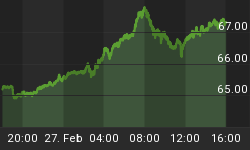Last year, massive cracks emerged in Jack Ma’s sprawling internet and mobile empire after Chinese authorities cancelled the much-anticipated $37 billion Ant Group listing. Jack Ma is the founder and former-CEO of Alibaba Group Holding Ltd (NYSE: BABA), which used to own Ant Group, back when it was known as Ant Financial and Alipay. Regulators cited changes to the fintech regulatory environment, along with other major issues, for the cancellation. However, most investors did not buy it and expected Alibaba to pay a price, especially after Ma’s outburst criticizing the way China’s state-owned banks operate.
Turns out they were right on the money: Chinese regulators have just fined Alibaba a staggering $2.75 billion for antitrust violations, a record for a Chinese company.
Beijing has charged Alibaba for anti-monopoly violations for abusing its dominant market position. State Administration for Market Regulation (SAMR) has declared that Alibaba had been abusing its market dominance since 2015 by forbidding its merchants from using other online e-commerce platforms.
The Big Ant
Most of Alibaba’s problems, however, seem to stem from its financial arm.
Over the past decade, Ant Group evolved into a one-stop shop for everything from online payments and financial investment to offering loans and numerous other financial services, amassing over 700 million monthly users to become the world’s most powerful fintech. Jack Ma created Alipay, a subsidiary of Ant Financial, in 2004 to give Chinese customers who lacked credit and debit cards an easy way to shop in the vast online marketplace. The platform has grown from strength to strength and now boasts 1.3B users.
Ant Financial’s dual listing in the Hong Kong and Shanghai stock exchanges was expected to raise at least $35 billion.
As Alipay grew, Jack Ma discovered that banks were not doing nearly enough to support small businesses and began advancing them with small loans. In 2010, Alipay was carved out of Alibaba after the authorities said the platform would need a new license to operate.
By 2013, Alipay was holding customer funds worth billions of dollars in escrow. It was around that time that the company came up with the idea of investing idle customer funds in money-market funds to earn an income. The money market fund, known as Yu'e Bao for "leftover treasure”, allows customers to invest as little as 0.01 yuan ($0.0015). The fund pays interest rates several points higher than what banks pay on short-term deposits, something it’s able to do because its status allows it to invest in riskier products than what banks are allowed to tap.
A boom in asset-backed securities issued by micro-lenders that package consumer loans into securities has been fueling the company’s growth.
China’s banks, including the country’s largest, have not been happy with the turn of events, and have complained that Ant has been siphoning away their deposits, forcing them to pay higher interest rates to attract deposits and even leading to the closure of branches and ATMs.
One state-owned TV channel famously described Ant’s massive money market fund as a “vampire sucking blood from banks”.
Beijing grew wary, and has been looking for ways to put the clamps on Ant.
Two years ago, China’s central bank scuttled Ant’s year-long efforts to build a national credit-scoring system by barring banks and institutions making loans from using it, though it did develop a private system. Unlike the U.S., China lacks a national credit scoring system.
Chinese regulators have instructed Ant Group to apply as a financial holding company, which would make it subject to central bank oversight. Ant will also have to remedy what regulators have deemed unfair competition in its payments business and improve its corporate governance.
BABA stock on the move
Interestingly, BABA stock has been soaring after the fine, jumping nearly 10% since the ruling.
HSBC says the rally is happening because Alibaba's "Sword of Damocles" has been lifted with regulatory risks already priced in and antitrust concerns largely put to rest.
The firm says the company’s antitrust penalty has "no fundamental impact on the business or GMV" though it does note that the internet sector remains subject to merger control review by Chinese regulators.
















